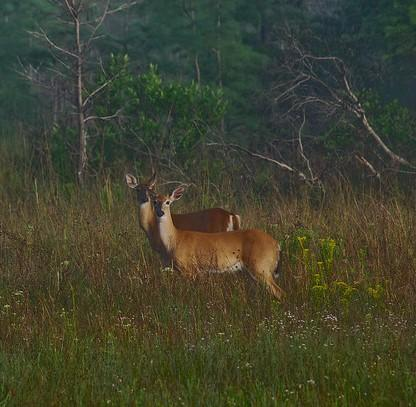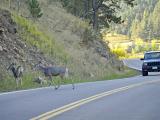The first detection of chronic wasting disease (CWD) at a Texas captive-deer research facility has upended nearly 50 years of white-tailed deer research that officials said has influenced deer management across the country.
In a news release issued late last week, the Texas Parks and Wildlife Department (TPWD) reported the suspected case in a 14-month-old white-tailed buck at the Kerr Wildlife Management Area (WMA) research facility. Samples from the deer were sent to the National Veterinary Service Laboratory in Ames, Iowa, for confirmation.
All deer at the facility had earlier been euthanized, and testing revealed no additional CWD cases. In May, officials had stepped up disease surveillance there since a CWD test on a doe euthanized in January yielded conflicting results.
Assessments at the facility this summer included taking swabs of equipment, water, and feed sites plus targeted euthanasia and tissue testing. Amplification and regulatory tests confirmed no CWD in 66 deer after euthanasia.
Staff will continue to investigate opportunities to enhance the understanding of this insidious disease in both captive environments and free-ranging populations.
As part of the investigation, however, deer were screened using antemortem biopsies in October, which turned up the current presumptive case from a tonsil biopsy.
"Staff will continue to investigate opportunities to enhance the understanding of this insidious disease in both captive environments and free-ranging populations," TPWD Wildlife Division Director John Silovsky said in the release.
Deer not routinely moved to or from site
When built in 1974, the 23-acre facility initially housed native Texas deer obtained throughout the state, and TPWD said it hasn't routinely moved deer to or from the site.
The disease was first detected in Texas in 2012, in free-ranging mule deer in a remote area of the Hueco Mountains near the Texas–New Mexico border. CWD has since been detected in Texas in captive and free-ranging cervids, including white-tailed deer, mule deer, red deer, and elk, the TPWD said.
Found in deer and other cervids in 31 US states and four Canadian provinces, CWD is a fatal neurodegenerative disease caused by infectious misfolded proteins called prions. Though no human cases have been found, health officials urge people to avoid eating the meat of infected animals and to take precautions when field-dressing or butchering cervids.





















